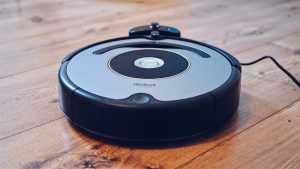The much-anticipated merger between e-commerce giant Amazon and leading robot vacuum manufacturer iRobot has officially collapsed, leaving both companies to face significant consequences. The $1.4 billion business venture was deemed untenable due to insurmountable regulatory hurdles, with both EU and U.S. antitrust officials expressing concerns that ultimately led to the termination of the deal.
In response to the failed merger, iRobot announced a substantial restructuring plan aimed at cutting down expenses. Unfortunately, this move resulted in the elimination of 350 jobs, representing a staggering 31% of its workforce. Adding to the upheaval, Colin Angle, the founder of iRobot and the driving force behind the popular Roomba robot vacuum, resigned from his CEO role in the face of these challenging circumstances.
The European Union's regulatory watchdog played a pivotal role in stifling the proposed acquisition. EU antitrust chief Margrethe Vestager's preliminary investigation raised concerns that the merger could potentially allow Amazon to dominate the market by limiting access to its platform for iRobot's competitors. This move could have led to the delisting of rival robot vacuum cleaners, reduced visibility, or increased advertising and selling costs on Amazon's marketplace, particularly impacting markets in France, Germany, Italy, and Spain.
U.S. authorities were also poised to reject the deal, with the Federal Trade Commission planning to advise against it and potentially file a lawsuit. However, the companies preemptively withdrew their proposal before the FTC could intervene.
Despite Amazon's significant investments in the smart home device market, owning popular brands such as Alexa and Ring, the failed acquisition represents a setback for the e-commerce giant. The company expressed disappointment over missing the opportunity to expand its presence in the consumer robotics sector.
Conversely, iRobot is now bracing for a substantial hit to its financials. The company anticipates a 25% reduction in revenue for the 2023 fiscal year and expects to report a loss ranging between $265 and $285 million. As part of the termination agreement, Amazon will pay iRobot a $94 million termination fee.
The fallout from this failed merger has had a significant impact on iRobot's shares, which have experienced a downturn. In contrast, Amazon's shares have seen a slight increase, signaling a sigh of relief for critics who were concerned that the merger would further consolidate Amazon's dominance in the smart home devices market.
This setback for Amazon follows a mixed record with competition regulators, having successfully acquired healthcare provider One Medical and MGM's movie library but now facing legal challenges over accusations of profit-boosting through allegedly illegal strategies. The failed merger serves as a reminder of the complexities and uncertainties involved in large-scale corporate alliances, with ramifications for both industry giants.






















